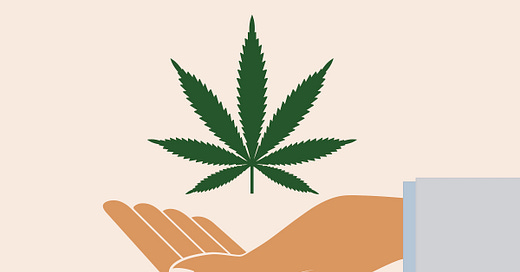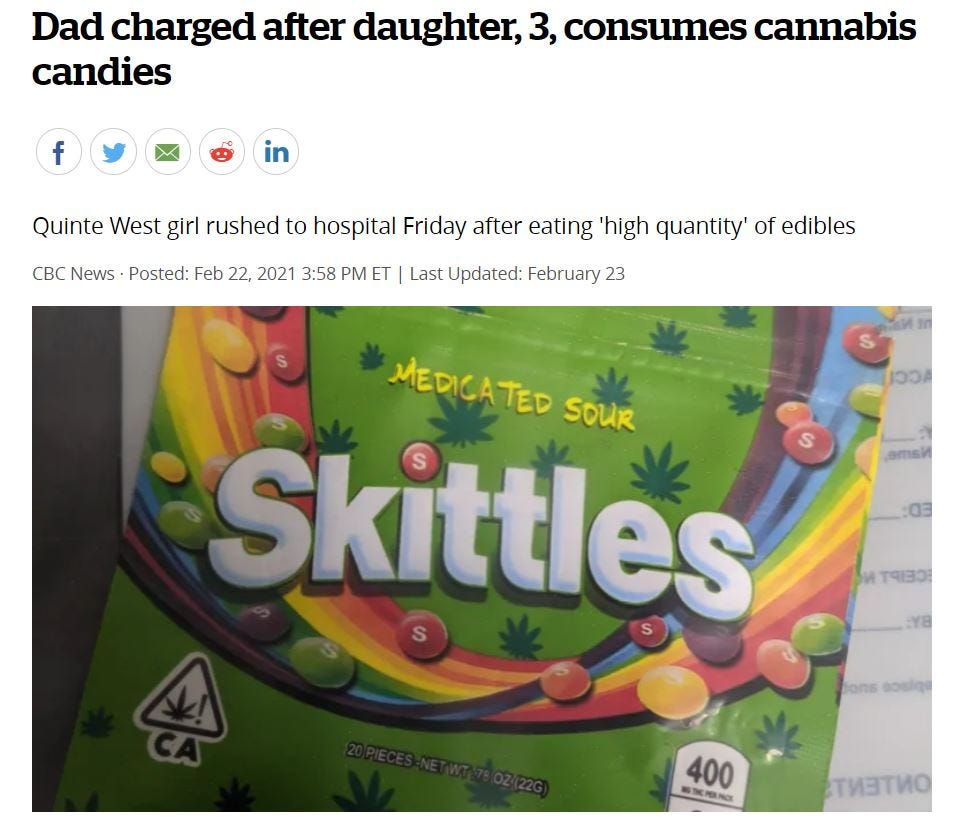What the Media Gets Wrong About Cannabis
Holding the media to a higher standard when it comes to cannabis
Welcome to Four PM, where we grow, harvest, and deliver the freshest cannabis industry insights direct to your inbox! 👋🏼
Friends,
I’m often asked the same question by family members back home in Ireland: If cannabis is as safe as you say it is, then why was it ever made illegal in the first place?
This is a short question with a rather long answer.
At the core of the prohibition of cannabis was the desire to arrest and imprison certain groups of people based on their backgrounds and the color of their skin, with a lot of misinformation to provide cover.
The data couldn’t be clearer: though African American men consume cannabis at the same rate as white American men, they are twice as likely to be arrested for possession.
In order to change this, we need to legalize cannabis on a federal level. But for this to happen globally we must dispel the misinformation that has continued to shape the narrative about cannabis for the past 60-plus years.
Only yesterday the Canadian Broadcasting Corporation (CBC) reported that a child had consumed cannabis edibles that had been packaged as Skittles, and resembled them too.
What the article failed to mention was that the products were purchased on the illicit market, not from legal retailers.
Of course, I’m not advocating for incidents such as this to not be covered; what I’m suggesting is that it’s essential to be accurate.
Playing Off A Decades-Old Narrative 💨
Many of these legacy media publications use the fear and paranoia that still surrounds cannabis to drive views to their articles.
Only last year New Zealanders were given the chance to legalize cannabis—a rare opportunity they turned down at the ballot box.
In the lead-up, many articles depicting cannabis as nothing more than a dangerous drug were published, something that no doubt contributed to the outcome.
The cannabis industry may not have the reefer mania reputation it once did, but that doesn’t mean that decades of stigma will go away overnight—especially if the media continues to treat cannabis with undue suspicion.
Moving Forward ➡️
We have to invest in consumer education to ensure that there’s as much good information readily available to combat clickbait fearmongering about the new super-potent “marijuana.”
From my standpoint, the Skittles case is a perfect example of why we need a regulated market. In any decent industry, companies would not be able to swipe the logos of popular products in an attempt to leverage someone else's brand.
In any legal market, this would be illegal—and that should be the real story here.
Did you gain value from reading this edition of Four PM?
This Newsletter is Brought to You By…
Looking for the best software application to produce high-quality cannabis?
Elevated Signals is that company.
With a long list of happy customers ranging from craft cultivators such as Habitat and Gnomestar to cannabis giants Pure Sunfarms and Decibel, Elevated Signals is the leading cannabis production software provider.
I’m not saying using Elevated Signals guarantees that you’ll produce high-quality cannabis, but there's no denying the strong correlation.
Check out Elevated Signals today, and tell them Matt from Four PM sent you to access special referral rates. 🚀





